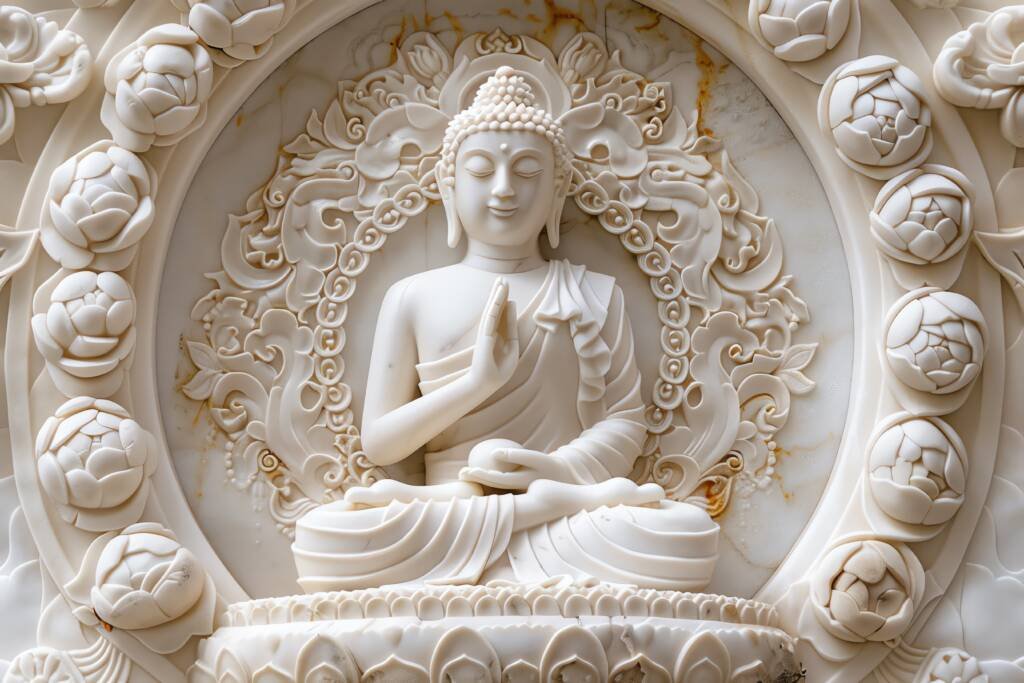Ancient India, a crucible of profound spiritual and philosophical thought, witnessed the birth of two remarkable religions in the 6th century BCE: Buddhism and Jainism. Emerging as alternatives to the prevailing Vedic traditions, these religions offered new paths to spiritual enlightenment and societal transformation. Founded by Siddhartha Gautama, known as the Buddha, and Mahavira, respectively, Buddhism and Jainism emphasized principles of non-violence, compassion, and self-discipline. Their teachings not only provided fresh perspectives on spirituality but also profoundly influenced Indian society, art, and philosophy, creating a rich and enduring legacy.
Siddhartha Gautama, a prince who renounced his royal life in search of truth, attained enlightenment and became the Buddha, the “Awakened One.” His teachings, encapsulated in the Four Noble Truths and the Eightfold Path, provided a systematic approach to overcoming suffering and achieving Nirvana, a state of ultimate liberation. Buddhism’s emphasis on mindfulness, ethical conduct, and mental discipline resonated with many, leading to its rapid spread across Asia.


The principles of non-violence and compassion were central to Buddhist philosophy. The practice of ahimsa (non-violence) extended beyond human interactions to include all living beings, fostering a profound respect for life. Buddhist monastic communities, or sanghas, were established as centers of learning and spiritual practice, playing a crucial role in preserving and disseminating the Buddha’s teachings. These monastic institutions also contributed to the social and cultural life of ancient India, promoting education and moral values.
The influence of Buddhism on Indian art and architecture is particularly notable. The construction of stupas, monasteries, and rock-cut caves, adorned with intricate carvings and paintings, reflected the artistic and architectural brilliance of the time. The stupas, such as the Great Stupa at Sanchi, served as reliquaries and places of meditation, symbolizing the Buddha’s enlightened mind. The exquisite murals in the Ajanta and Ellora caves depict scenes from the Buddha’s life and Jataka tales, illustrating the moral and ethical teachings of Buddhism.
Jainism, founded by Mahavira, the 24th Tirthankara, also emerged as a powerful spiritual force. Mahavira’s teachings emphasized the principles of ahimsa, truthfulness, non-stealing, celibacy, and non-possessiveness. Jainism advocated for strict asceticism and self-discipline as means to purify the soul and attain liberation. The Jain path to salvation involved rigorous practices, including fasting, meditation, and renunciation of worldly attachments.

The Jain principle of ahimsa was even more stringent than in Buddhism, leading to practices such as vegetarianism and careful movement to avoid harming even the smallest of creatures. This deep commitment to non-violence had a significant impact on Indian society, promoting a culture of tolerance and compassion. Jainism also contributed to Indian philosophy through its doctrines of anekantavada (the theory of multiple perspectives) and syadvada (the doctrine of conditional statements), encouraging intellectual openness and flexibility.
Jain art and architecture flourished alongside its spiritual teachings. The construction of magnificent temples, such as those at Mount Abu and Shravanabelagola, showcased the intricate craftsmanship and devotion of Jain patrons. These temples, often adorned with detailed sculptures and carvings, reflected the Jain values of purity and spiritual elevation.
Both Buddhism and Jainism challenged the rigid social hierarchies, advocating for more egalitarian and ethical approaches to life. Their teachings influenced the development of Indian philosophy, inspiring movements and thinkers across centuries. The emphasis on inner purity, ethical conduct, and compassion in both religions contributed to a more humane and reflective society.
The legacy of Buddhism and Jainism continues to resonate in contemporary India, shaping its cultural, ethical, and spiritual landscape. Their teachings, emphasizing peace, non-violence, and compassion, offer timeless wisdom that remains relevant in today’s world. The rich tapestry of Indian spiritual thought, woven with the threads of Buddhism and Jainism, stands as a testament to the enduring quest for truth and enlightenment that has defined India’s profound and diverse heritage.



